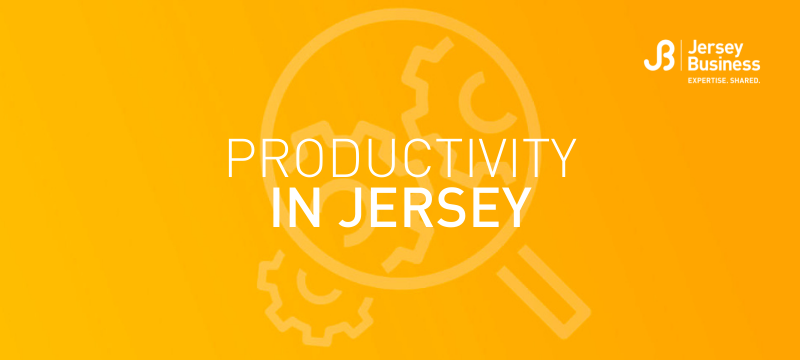Productivity, what does it mean for business?

There's a lot of talk about productivity, but what does it really mean for people leading and working in organisations in Jersey, and why does it matter?
The term productivity is widely used in economic speak but it's perhaps not a term that is commonly used by business leaders when thinking about their organisations. However productivity in the context of an organisation plays a key role in its culture, profitability and competitiveness.
In the business context, productivity is the ability of the organisation to convert all the things that is does (inputs) into products and services (outputs). The more effectively the inputs (people, equipment, raw materials, buildings, energy etc.) work, the higher the relative value of the output- the product or service. So, in simple terms the more productive an organisation is, the more efficient it is and the more profitable or viable, it will be in the long term.
Quite often people think that productivity and efficiency are the same thing. This is not true. Efficiency is the about getting the same level of activity from fewer resources or costs. For example, cutting the amount of time spent on a process, or overhead costs, or energy use and expecting the same volume of work to be delivered. This is very relevant in scenarios where processes have evolved with layer upon layer making them inefficient, or where equipment is old and expensive to run or software hasn't been upgraded or integrated.
Productivity is a different thing. Productivity is about getting more activity with the same level of resource. For example, having integrated systems that can process data with the click of a button enabling the user to spend their time analysing it rather than managing it; or using cloud technology so data can be accessed and shared any time, any place, anywhere. Let's be clear, efficiency is definitely one element of productivity and in many ways a 'quick win'. But increasing productivity is directly linked with improving top and bottom line performance.
Why is this important? Simply because a focus on improving productivity is an opportunity to create a culture that improves overall business results. Increasing productivity increases competitiveness, profitability, the ability of the business to grow and to respond to internal and external shocks. High customer satisfaction, better supplier relationships, appropriately remunerated and engaged people and the ability to invest are all additional advantages of strong productivity. However, perhaps the most important aspect is that if a business's productivity is not improving it is more likely to be losing out to its competitors and going backwards in its marketplace.
Everybody in an organisation has a role in increasing productivity, but leadership is critical. Leaders that focus on productivity create a culture of continuous improvement focused on delivery. They encourage people to be nimble in the way they work and the way they think. They are clear about what good performance looks likes and identify the key measures that matter. They provide the best tools for the job and invest in talent.
So, if you want your business to be more productive and profitable, think about how it can be more efficient so that your valuable resource - your people - can spend more of their time doing higher value activity. There are a number of key options available to most businesses looking to increasing productivity, for example:
- Invest in people: Developing skills is a great way to enable people to be more efficient in their role, especially if you create a culture where people can also identify opportunities for improvement. The more skilled people become the better they do their job and typically they become happier in the role too, because investing in people shows commitment and provides the opportunity for progression.
- Process and organisational efficiency: Almost every process in an organisation has the potential for improvement. Identifying the points in a process at which there is wasted time, duplication or repetition and working out how to reduce these will inevitably increase efficiency. Quite often this can also identify operational changes that can improve workspace and workforce efficiencies.
- Technology improvement: Introducing new software or equipment that enables people to do more with their time. This might be software packages that process data quicker, produce reports automatically or analyse data to make it more meaningful, all of which save time, enabling users to deliver more volume or more value-adding activity. Upgrading or introducing new equipment might produce more in the same time, utilise space better or even provide an opportunity to introduce new products.
- Increasing the scale of business: Growing your business without increasing your costs at the same rate will increase your productivity. If your existing set-up can, for example, double the product or services you can deliver without doubling the cost base, productivity and profitability will increase.
When the Covid-19 restrictions were introduced in 2020 the way we all worked changed overnight. In completely upsetting the 'normal' working environment many of these changes improved productivity. Others highlighted areas of operational difficulty that are now potential areas for improvement. It would be a wasted opportunity not to learn from this turbulent time, take advantage of the positive changes and embed a new culture of continuous productive improvement.
